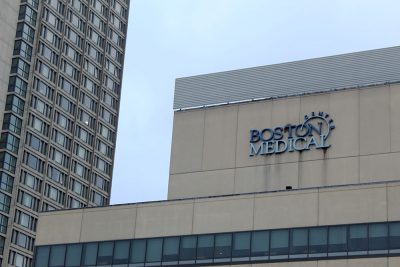
The City of Boston has launched its second round of a fellowship program to help foreign healthcare professionals find a career in a similar field in local hospitals.
The Mayor’s Office of Immigrant Advancement in partnership with African Bridge Network — an organization that helps roughly 260 immigrant professionals per year with career development — will select 25 participants for spring 2022 to join the Immigrant Professionals Fellowship.
Fellows will go through a free, four-week placement training with ABN before entering a three-month paid position within a hospital in Greater Boston.
Elena Kuyun, workforce development manager at Mass General Brigham, said the hospital has faced challenges recently with recruitment and finding qualified candidates.
“It’s really a win-win situation for us,” Kuyun said of the fellowship. “We’re giving them an opportunity and they’re giving us back their skill sets and their great work ethic.”
The fellowship will alleviate staff shortage concerns for local hospitals. Qualified candidates will be paid $20 per hour for up to 30 hours a week and be placed in non-clinical positions.
Emmanuel Owusu, executive director of ABN, noted the difficulties immigrant professionals with foreign credentials face when transferring their license to satisfy U.S. labor standards.
“The longer they stay out of their desired field they want to do their career, the longer the gap goes on their resume and that makes the matters even worse,” Owusu said. “So the lack of U.S. working experience is a big deal for these individuals that we serve.”
As the hosting agency, Owusu said the ABN provides the program’s training — focusing on navigating the American labor market and job search process — while the City provides funding, paying for half of the fellows’ wages. The participating hospital pays the remaining half.
Owusu added the ABN will help with placement and post-placement support for fellows, among other duties.
Natalia Espinosa Tokuhama, economic integration specialist at the MOIA, said the program will help participants work in the industry by filling up non-clinical positions.
The MOIA is also advocating for laws to be relaxed to make it easier for foreign professionals to transfer their licenses or be re-certified in the U.S.
“We hope the success of this program will prove why state laws need to be change and, in the meantime, provide foreign-trained professionals access into the healthcare industry through non-clinical position,” Tokuhama said.
“Boston has a world renowned healthcare industry, a really big sector here, and it serves diverse populations,” she said. “It needs the skills of individuals who can navigate those spaces.”
In addition to working with the ABN, MOIA has partnered with several hospitals including Beth Israel Deaconess Hospital, Boston Medical Center, Boston Childrens’ Hospital and Mass General Brigham.
The program has also been expanded from last year when 10 residents in the Greater Boston area were selected.
MOIA also offers programs to non-professional immigrant workers into alternative training programs, including in green infrastructure and worker-owned cooperatives.
“We ran this [fellowship] last year, and we proved it really works,” Espinosa said. “We’re inviting not just healthcare sector partners, but like, in general, for partners in Boston to think about how they can start tapping into foreign trained professionals.”
Correction: A previous version of this article stated the MOIA program accepted 15 Greater Boston residents last year. The correct figure is 10. The article also incorrectly stated that the program aims to fill up non-clinical positions before licenses have been transferred. In fact, the program is pushing for state law to make it easier to transfer licenses and for people to be re-certified. The article has been amended to reflect these changes.














